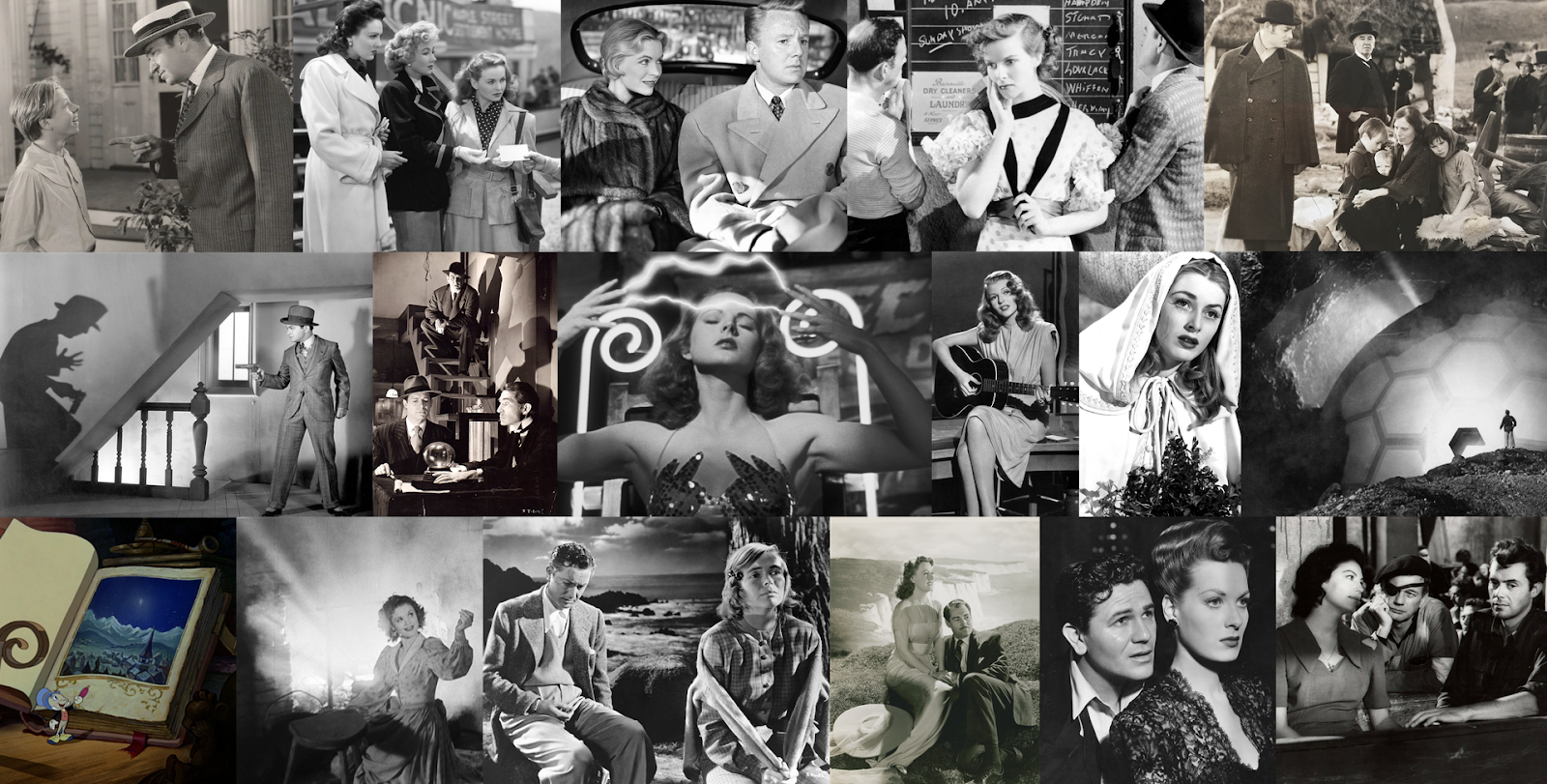This podcast season of "Hollywood Classics" reaches a crescendo as I pack over a dozen "capsules" from my Patreon into one episode. Some of these reflections run close to half the length of a normal review while others are just over a minute. As such, they range from tight but comprehensive overviews of a film to very quick riffs on a single element of an otherwise undiscussed movie. Topics include The Angel Wore Red's and The Fallen Sparrow's interpretations of the Spanish Civil War, Little Caesar's spot on the very cusp of the gangster genre, colorful side characters in The Woman in White, the way that everyday forties life is depicted in productions ranging from A Letter to Three Wives to an early version of Dick Tracy, the ability of Hollywood to capture current events alongside more escapist elements in films like The Enchanted Cottage, The White Cliffs of Dover's sympathies with British aristocracy from a down-to-earth American perspective, The Devil and Daniel Webster as a rare cinematic look at New Hampshire, and Pinocchio's proto-Disneyland quality (an idea I've also explored as a visual tribute). Stars like Katharine Hepburn (Morning Glory), Clark Gable (Parnell), and Rita Hayworth (Gilda, of course) appear throughout, and connections casual and arresting alike are made between several of these titles and Twin Peaks itself; for example, It Came From Outer Space anticipates the woodsmen of The Return in a similar location and situation. These topics are organized roughly along a snaking line of occasionally interconnected genres, including poignant melodramas like Invitation (in which a woman realizes her husband may not really love her) to noirish crime pictures like Nightmare Alley (in which a carnival mentalist rises to high society charlatan but risks falling to sideshow geek). Eventually a wide range of fantastical topics - sci-fi, fairy tales, supernatural allegories - bleed into meditations on the legacies of mid-twentieth century wars.
One of the longer discussions, which kicks off the episode, focuses on the many charms of Ah, Wilderness!, a 1935 adaptation of Eugene O'Neil's play set in a 1906 New England town. In addition to leading off from the last couple months of Lost in the Movies subjects - the similarly comic Swing Time and Monkey Business - this bemused but still sincere portrait allows for an obvious comparison to (and contrast with) Thornton Wilder's Our Town. Since I covered that less comedic, more ethereal tribute to small town Americana at the turn of the century in my Twin Peaks Cinema podcast (alongside other underbelly-of-the-pastoral tales Peyton Place and Kings Row), I was eager to tease out those connections as well as exploring how later decades remembered this earlier, ostensibly more innocent zeitgeist.
Subscribe, rate, and review on Apple Podcasts
(and most places podcasts are found)
tfw you glimpse where your son’s vaguely uplifting graduation speech is about to go pic.twitter.com/hHrLaflDW8
— Joel Bocko (@LostInTheMovies) August 20, 2019
THE LINE-UP
(added in the afternoon)















































